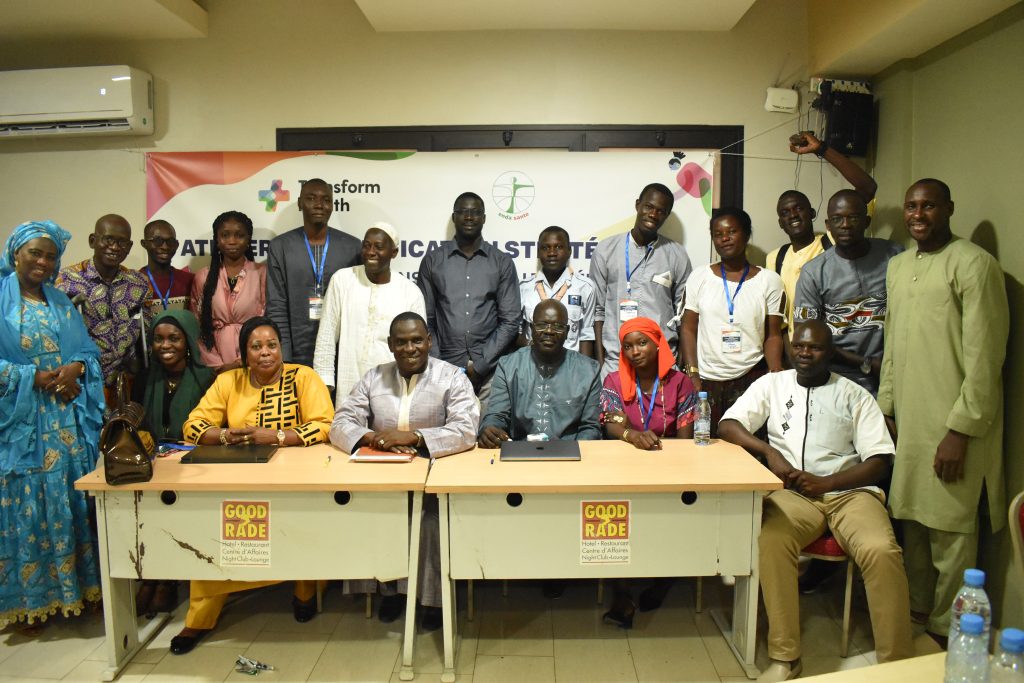Senegal’s quarantine policy sought to slow transmission, and local health care workers battled the pandemic from the ground up.
DAKAR, Senegal — Aissatou Diao talked about Covid-19 a lot. How to socially distance, what to do if you have a cough or a fever. But when the first coronavirus case arrived in Yeumbeul, a village outside Dakar where she does health outreach as a community relay, she couldn’t believe it.
“I almost died when I heard I was on the list of people who were in contact with the Covid patient,” Diao recalls.
That single contact brought Diao to Novotel, an upscale hotel in Dakar with Atlantic Ocean views. As part of its pandemic response, Senegal sought to provide a bed to everyone with Covid-19 — including mild or asymptomatic cases — and their direct contacts. In the spring of 2020, for about six months, Red Cross volunteers replaced hotel staff at Novotel, and rooms filled with people like Diao, exposed to Covid-19 and sent away to isolate.
Her fellow community relays, who did Covid-19 outreach with her, kept calling and calling to check her status. They wanted to know if they’d be next. “We all got ready with our luggage, waiting for the results,” one of them said.
Diao tested negative, twice, and she left quarantine after just four days. A year later, she calls it a funny story: a short stay in quarantine as she tries to make others aware of the seriousness of Covid-19.
Diao’s experience captures both sides of Senegal’s Covid-19 response. The West African country used aggressive interventions like this isolation policy to slow transmission. At the same time, community and local health actors bolstered the public health response from the bottom up, relying on longstanding relationships and trust to convince people to wear masks, seek out testing, and get treatment.
“We have what we call a ‘chain of solidarity’: The nation joined hands together,” Moussa Seydi, chief of infectious disease service at Dakar’s University of Fann Hospital Center, said. “Religious leaders came to join the political decision-makers, and also, the community involved themselves in giving this response to Covid-19.”
Vox reported in Senegal at the end of March, just a little more than a year after the country detected its first Covid-19 infection. In Dakar and in the surrounding districts, we spoke to government and local officials, public health experts, doctors, nurses, community leaders, and volunteers to understand how Senegal’s early action from the government and the community buttressed a fragile health care system. This article is part of The Pandemic Playbook, Vox’s exploration of how six nations developed strategies to fight Covid-19.
Senegal’s early policy of isolating people in treatment centers or hotels — combined with other top-down public health measures, such as curfews, mass gathering bans, and temporary school closures — sought to slow transmission in a place that has limited hospital beds, doctors, and resources. A 2017 World Bank study estimates that Senegal only has seven doctors per 100,000 patients. The United States, by comparison, has about 260 physicians per 100,000 people.
The country relied on its experience battling other outbreaks, from the Ebola epidemic in 2014 to HIV/AIDS, to prepare and act early. Senegal depended on local leaders and health agents, all front-line workers, often with multiple job descriptions: communicators, contact tracers, caregivers. They tried, and sometimes struggled, to make the Covid-19 policies work in their communities. They handed out masks. They went on local radio to talk about the coronavirus. These tiny acts, replicated from neighborhood to neighborhood, helped persuade a public to comply with public health measures.
“When we talk to the population and tell [them] to face this Covid, it’s the community who can do it,” Abdoulaye Bousso, the director of Senegal’s Health Emergency Operation Center, who helped lead the country’s Covid-19 response, said. “It’s not the health system, it’s the community.”
Those interventions helped Senegal withstand a first wave, with fewer than 15,000 cases and just over 310 deaths by the end of September. By then, the country had relaxed many of its most stringent policies, a combination of its early success and a growing recognition that cost and sometimes fierce public backlash had started to make those measures unsustainable.
Read more: https://www.vox.com/22397842/senegal-covid-19-pandemic-playbook
By Vox.com


